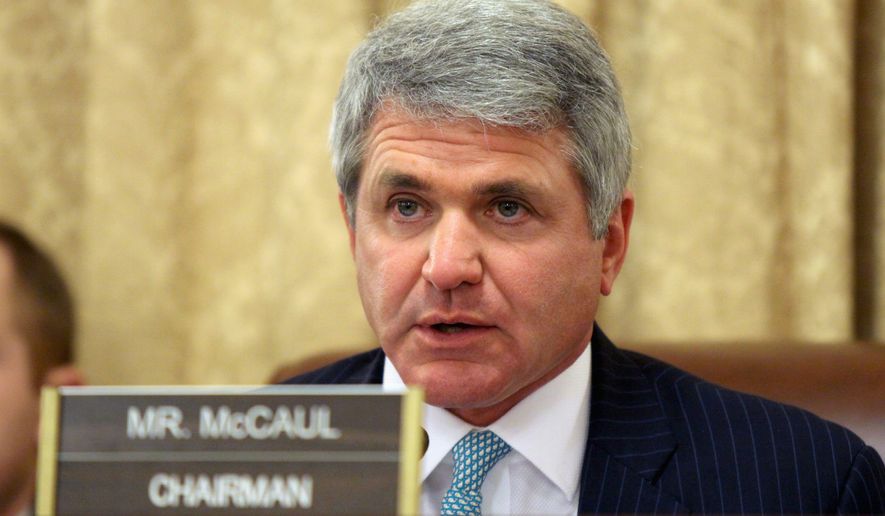House Committee on Homeland Security Chairman Michael McCaul said the nation’s effort to counter violent extremism lacks structure, sufficient manpower and adequate funding, and is calling on the Department of Homeland Security to step up its efforts.
The Texas Republican said President Obama’s three-year-old strategy has been hobbled by mismanagement and is completely inadequate to address the sophisticated recruiting onslaught by the Islamic State,
“We think there should be a better countering violent extremism effort, that there should be a lead agency tasked to handle that,” Mr. McCaul told The Washington Times Wednesday after a hearing on terrorism and social media.
He said DHS only has four full-time employees that focus on implementing the strategy, which is supposed to encourage “credible voices” in the community to counter the violent extremist siren call from terror groups. Those terror groups have been leaning heavily — and successfully — on social media tools to recruit and radicalize supporters online.
DHS is in the process of boosting training, analysis and information sharing with state and local agencies.
Lawmakers have grown increasingly concerned about the Islamic State’s “call to arms” to attack military installations or law enforcement officers. Those concerns spiked in the aftermath of Tuesday’s killing of Usaama Rahim by terror investigators who had him under surveillance, The investigators confronted him because he had bought knives and talked of an imminent attack on “boys in blue,” the FBI said Wednesday.
Mr. Rahim plotted for at least a week to attack police, the FBI said in a complaint against a family member who was arrested Tuesday, the day Mr. Rahim was shot to death. On Wednesday, the relative, David Wright, was ordered held on a charge of conspiracy with intent to obstruct a federal investigation.
The FBI said Mr. Rahim, who had previously discussed beheadings, bought three fighting knives and a sharpener on or before May 26 and he told Mr. Wright on Tuesday he would begin trying to randomly kill police officers.
At the Capitol Hill hearing, U.S. law enforcement officials told lawmakers that the growing use of encrypted communications and private messaging by supporters of the Islamic State group is complicating efforts to monitor terror suspects and extremists, U.S. law enforcement officials said Wednesday.
The officials said that even as thousands of Islamic State group followers around the world share public communications on Twitter, some are exploiting social media platforms that allow them to shield their messages from law enforcement.
“There are 200-plus social media companies. Some of these companies build their business model around end-to-end encryption,” said Michael Steinbach, head of the FBI’s counterterrorism division. “There is no ability currently for us to see that” communication, he said.
Asked later in the hearing if he thought the technology companies were being unhelpful, Mr. Steinbach replied, “The companies have built a product that doesn’t allow them to help.”
He said he was concerned that evolving technologies were outpacing laws that allow law enforcement to intercept communications by suspects.
Through that online propaganda and covert communication, the Islamic State “has essentially created a terror franchise,” said Rep. John Ratcliffe, Texas Republican.
This year, the Islamic State has published more than 1,700 pieces of terrorist propaganda, which includes videos, pictorial reports and magazines, said National Counterterrorism Center Deputy Director John Mulligan said.
Some of that propaganda has motivated numerous individuals to join the Islamic State’s battle to gain control of Iraq and Syria. To date, at least 3,700 Westerners have traveled — or attempted to travel — to that battlefield to support the terrorist group and more than 180 of those Westerners have been U.S. citizens, said Francis Taylor, under secretary of the Department of Homeland Security’s Office of Intelligence and Analysis.
The FBI has this year arrested a spattering of Islamic State supporters who were plotting large-scale attacks on military facilities that sometimes included taking hostages and using a car bomb to kill a large number of officers.
• This story is based in part on wire service dispatches.
• Maggie Ybarra can be reached at mybarra@washingtontimes.com.




Please read our comment policy before commenting.